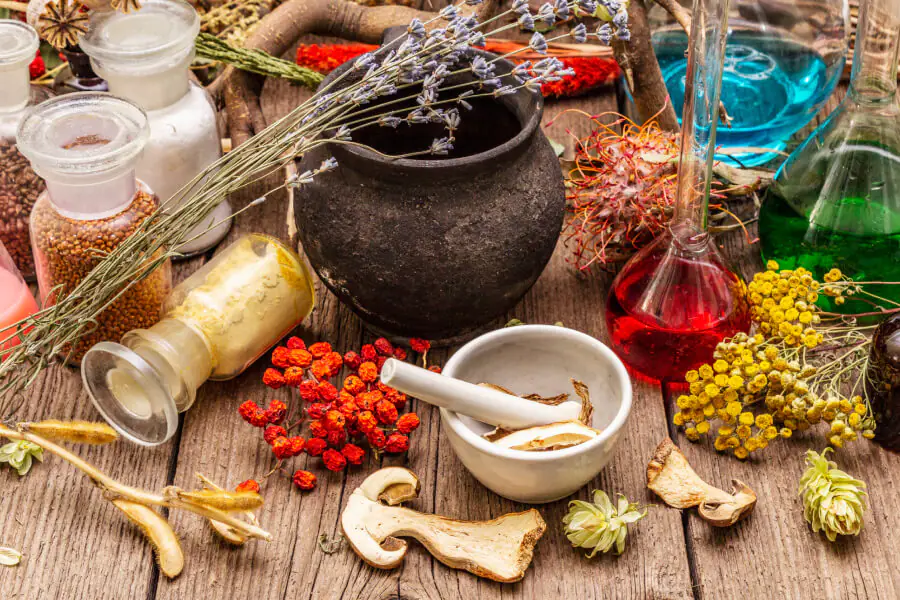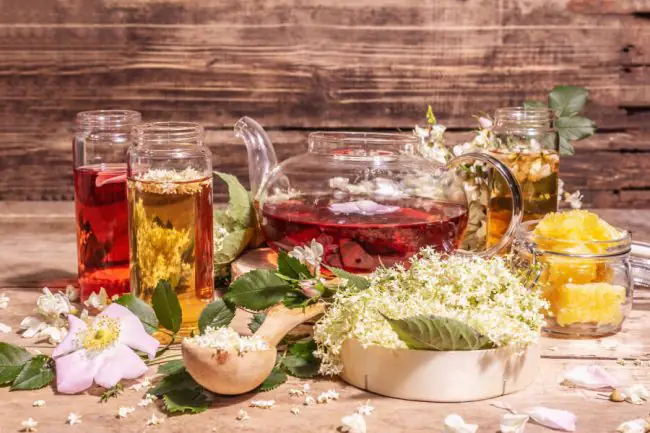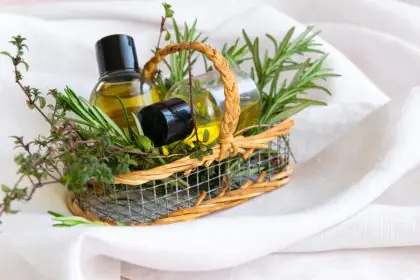When the seasonal cold and flu season rolls around, many people turn to herbal remedies to help reduce symptoms and support their immune systems.
Herbal medicine offers a natural approach to treating cold and flu symptoms, providing relief without harsh chemicals. If you are curious about how herbal medicine can be used effectively to fight off the seasonal cold and flu, keep on reading!
Seasonal Cold and Flu: Symptoms and Impact
Seasonal cold and flu are both viral infections that commonly occur during the colder months. While they share some symptoms, they differ in terms of severity and their effect on the body.
Common Symptoms of Seasonal Cold
Seasonal flu typically involves:
- Sneezing
- Sore throat
- Congestion
- Mild fever
These symptoms can range from mild to moderate, but they can still make you feel run down and uncomfortable. Flu symptoms are generally more severe and may include body aches, fever, and extreme fatigue.
Why Herbal Medicine for Seasonal Colds and Flu?
Herbal remedies have been used for centuries to treat illnesses like seasonal flu. Many herbs have natural antiviral and immune-boosting properties that can help reduce the severity of symptoms and even prevent illness altogether.
Benefits of Herbal Medicine
- Natural Healing: Herbal remedies are derived from plants and contain compounds that can naturally support the body’s healing processes.
- Milder Side Effects: Unlike many pharmaceutical medications, herbs tend to have fewer side effects and are less likely to cause unwanted reactions.
- Holistic Approach: Herbal medicine treats the whole body, not just isolated symptoms, helping to boost overall health and well-being.
Top Herbal Remedies for the Seasonal Cold and Flu
Here are some of the most effective herbs for treating and preventing the seasonal flu.
Echinacea: Immune-Boosting Power
Echinacea is one of the most well-known herbs for preventing and treating seasonal flu. It works by stimulating the immune system, which can help reduce the severity and duration of a cold. Echinacea is available in various forms, including teas, capsules, and tinctures.
Ginger: A Natural Anti-Inflammatory
Ginger is widely used for its anti-inflammatory and soothing properties. It helps relieve sore throat pain and can help with congestion during a seasonal cold. Drinking ginger tea or consuming it raw can help your body fight the cold.
Elderberry: A Potent Antiviral
Elderberry is a powerful herb known for its antiviral properties. Studies have shown that elderberry can shorten the duration of the flu and lessen the intensity of symptoms like fever and body aches. Elderberry syrup is commonly used as a remedy during the seasonal cold and flu season.
Turmeric: Combating Inflammation
Turmeric, especially its active compound curcumin, is widely used for its anti-inflammatory effects. It can help soothe the symptoms of the seasonal cold by reducing swelling in the airways and relieving sore throat pain. Turmeric can be consumed in tea or as a supplement.
Garlic: A Natural Antibiotic
Garlic has long been praised for its immune-boosting properties. It has both antibacterial and antiviral effects, making it effective against the seasonal cold. You can eat raw garlic, add it to meals, or take garlic supplements for the best results.
Thyme: A Respiratory Soother
Thyme is another herb that can provide relief from the seasonal cold. It has antimicrobial properties and can help with congestion and sore throat relief. Thyme can be made into tea or used in a steam inhalation to help clear up respiratory issues.
Licorice Root: Soothe Your Throat
Licorice root has long been used to treat respiratory discomfort. It works by reducing throat irritation and inflammation. Drinking licorice root tea can help soothe a sore throat and ease coughs during the seasonal cold.
How to Prepare Herbal Remedies for the Seasonal Cold
Herbal remedies come in various forms, making it easy to find a treatment that suits your needs. Here’s how to use some of the most popular herbal remedies for the seasonal cold and flu.
Herbal Teas
Herbal teas are a soothing and simple way to consume herbal medicine. Combine herbs like ginger, elderberry, and thyme into a warm, calming tea. Drinking herbal tea can help reduce symptoms like sore throat, congestion, and mild fever.
Tinctures and Extracts
Herbal tinctures are concentrated extracts of herbs made by soaking them in alcohol or glycerin.
These tinctures are potent and easy to take just a few drops can provide relief for seasonal cold symptoms. They are available in health food stores or can be made at home.
Steam Inhalation
Steam inhalation is an effective way to relieve congestion caused by the seasonal cold. Adding essential oils like eucalyptus or peppermint to hot water can help open nasal passages and clear up respiratory discomfort. Simply inhale the steam to experience the benefits.
Syrups and Elixirs
Herbal syrups like elderberry syrup are a great way to treat the symptoms of the seasonal cold.
These syrups are sweet, easy to consume, and provide immediate relief for sore throat and cough symptoms.
Preventing Seasonal Cold and Flu with Herbal Medicine
Herbs can also help prevent you from catching a seasonal cold. Immune-boosting herbs like Echinacea, elderberry, and garlic can be used daily to strengthen your body’s defenses against cold viruses.
Immune-Boosting Herbs
Consider adding these herbs to your daily routine during cold and flu season:
- Echinacea
- Elderberry
- Astragalus
- Garlic
- Ginseng
By using these herbs regularly, you can increase your chances of avoiding the seasonal cold altogether or, at the very least, lessen the impact if you do get sick.
Safety and Precautions When Using Herbal Remedies
Herbal remedies are generally safe, but it’s important to use them correctly and be aware of potential side effects.
Potential Side Effects and Interactions
Some herbs can interact with medications, so it’s important to consult with your healthcare provider before starting any herbal treatments.
Echinacea may interact with immune-suppressing drugs, and garlic can affect blood-thinning medications.
Consulting a Healthcare Provider
If you have any preexisting health conditions or are pregnant or breastfeeding, it’s always best to consult a healthcare provider before using herbal remedies. This ensures that the herbs you’re using are safe for you.
Conclusion
Herbal medicine is a natural and effective way to fight off the seasonal cold and flu. Herbs like
Echinacea, elderberry, ginger, and garlic offer a variety of benefits, from boosting your immune system to easing symptoms like sore throat and congestion.
By using herbal remedies, you can provide your body with the support it needs during cold and flu season while avoiding the side effects of conventional medications.
FAQs
Which herb is best for a seasonal cold?
Echinacea is one of the best herbs for preventing and treating seasonal colds due to its immune-boosting properties.
What can help with a sore throat from a cold?
Ginger, licorice root, and thyme are great herbs for soothing a sore throat caused by a seasonal cold.
Can herbal medicine prevent a cold?
Yes, using herbs like elderberry and Echinacea regularly can help strengthen your immune system and reduce the likelihood of getting a seasonal cold.
How can I use herbs for cold symptoms?
Herbal teas, tinctures, steam inhalation, and syrups are all effective ways to use herbs for treating the seasonal cold.







